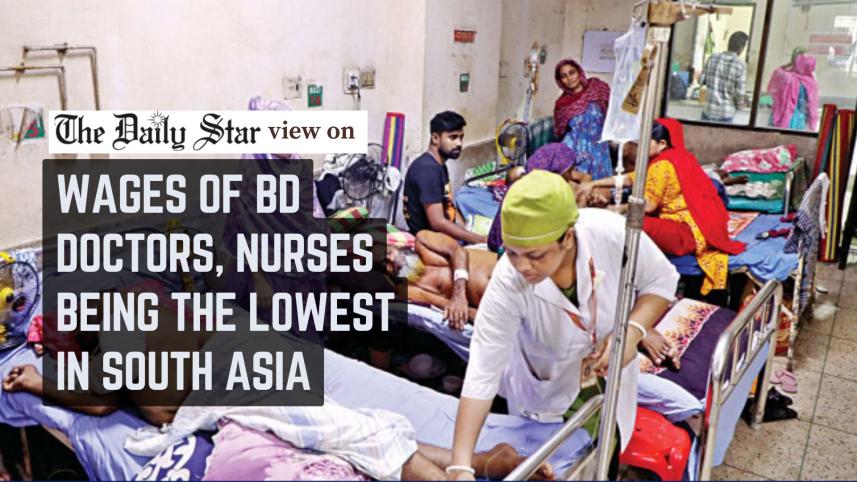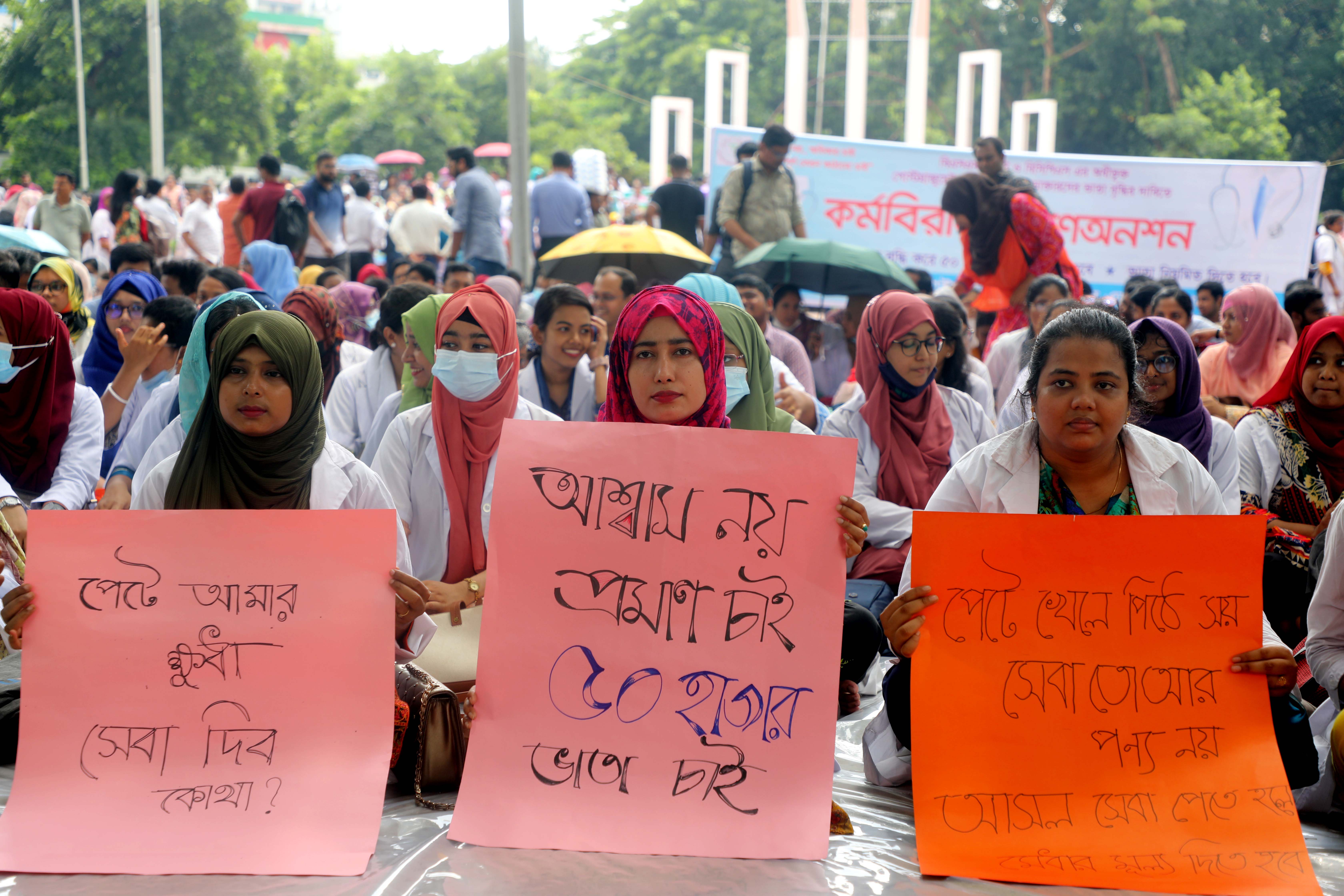We must rethink healthcare wages

It is a matter of shame for this nation that its doctors and nurses get the lowest wages and benefits in South Asia. Despite carrying the burden of national healthcare services, their salaries lag far behind those of their regional peers. A recent policy dialogue revealed that, on average, a doctor in Bangladesh earns around Tk 3 lakh annually, while a nurse earns Tk 1.9 lakh. In contrast, doctors in India receive more than Tk 16 lakh, and those in Nepal get over Tk 10 lakh. Nurses in these countries also earn three to four times more than those in Bangladesh. Considering such disparities, it is not surprising to see the dissatisfaction among our medical professionals, the impact of which is already visible on service delivery.
The crisis has both domestic and international dimensions. Young professionals entering the field find that their years of training earn them a little more than a subsistence income, especially in the private sector, where entry-level salaries often range between Tk 18,000 and Tk 25,000. Many have to resort to long hours of private practice for survival. So, the lure of significantly higher pay abroad makes migration a rational choice. As a result, the country's healthcare system is suffering from not only a declining morale but also brain drain.
What makes this more concerning is the absence of a sector-specific pay framework. Doctors and nurses in the public sector are tied to a uniform national pay scale, which does not account for the specialised and life-saving nature of their work. In the private sector, on the other hand, there are no minimum standards, leaving salaries inconsistent and often exploitative. Experts have repeatedly called for a separate salary structure for the health sector, aligned with regional benchmarks. This must include performance-based incentives, allowances for those working in remote or high-risk areas, and enforceable minimum wage standards for the private sector. Such measures are essential not only to retain talent but also to protect patients from the consequences of an overworked, demoralised workforce.
The health of the nation rests squarely on those who deliver care. Failing to compensate them fairly is not only unjust, but is dangerously short-sighted. We cannot afford to lose our doctors and nurses to neglect. Without urgent reform, the quiet exodus of health professionals will continue, eroding one of the country's most vital public services.



 For all latest news, follow The Daily Star's Google News channel.
For all latest news, follow The Daily Star's Google News channel. 

Comments